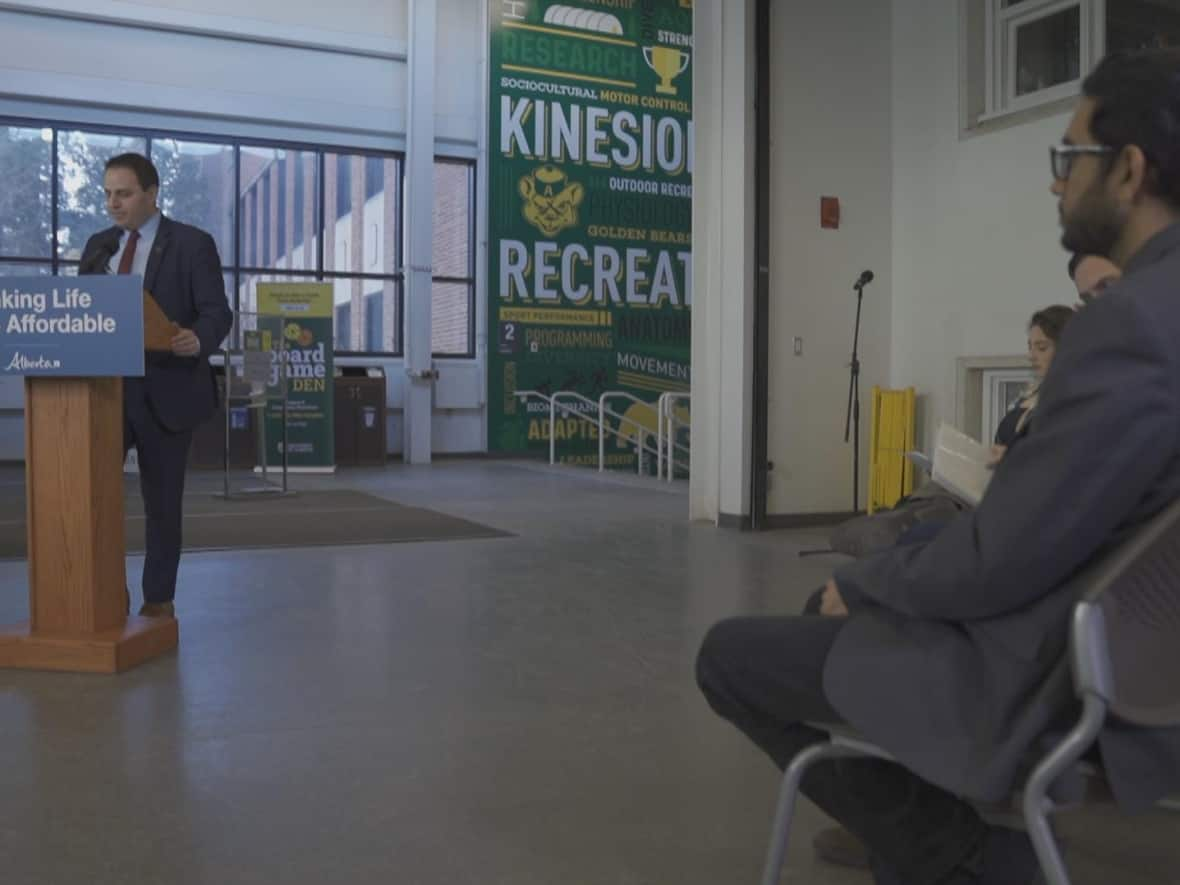Alberta caps tuition hikes for post-secondary students starting in 2024-25

Canadian students attending post-secondary institutions in Alberta will get some financial relief from the provincial government, including a cap on future tuition hikes and a reduced interest rate on student loans.
Starting in the 2024-25 school year, universities, colleges and other post-secondary institutions can't hike domestic student tuition by more than two per cent annually, Advanced Education Minister Demetrios Nicolaides said Thursday during a news conference at the University of Alberta.
As of July 1, student loans will see a reduced interest rate and a longer interest-free grace period, which will double from six months to one year. Approximately 164,000 Alberta students have loans, while the longer grace period is expected to benefit about 57,000 graduating students.
"In the midst of an inflationary crisis, we are taking action to ensure Alberta's post-secondary system remains accessible and affordable," Nicolaides said.
The government increased the income threshold to be eligible for the repayment assistance plan, to $40,000 from $25,000. The program assists individuals who are struggling to make loan payments.
As well, the monthly Alberta student grant will be boosted to $475 for 2022-23. About 10,000 low-income students currently receive the funding, the Alberta government said in a news release.
"This announcement today cannot come at a more critical time," said Matt Yanish, vice-chair of the Council of Alberta University Students, which represents 100,000 undergraduate students across Alberta.
"Like all Albertans, students have been heavily impacted by the cost-of-living crisis," Yanish said. "Thirty per cent of students here at the U of A are now regularly skipping meals due to the cost of food, and across the river at my home university at MacEwan, student food bank usage rates have more than doubled in the last year alone."
Christian Fotang, with the University of Alberta Students' Union, said the measures are appreciated but long overdue.
"After three years of seven per cent increases, and brutal, exceptional tuition increases that have happened here at the University of Alberta, we're also hoping to see more investments being put toward things like more non-repayable aid and grants that are needs-based, as well as recognizing the fact that students right now are struggling," Fotang said.
Bill Flanagan, U of A president and vice-chancellor, said the measures are welcome but do not address funding concerns from schools.
"The two per cent tuition cap ... raises the important question of how the Government of Alberta will address a funding shortfall if inflation continues to be above two per cent," Flanagan said in a statement to CBC News.
"To maintain a high-quality student experience, we need an adequate level of sustainable and predictable provincial funding."
International students left out
While multiple measures were announced for domestic students, there was nothing for international students to cheer about.
"It's very disappointing that the government has, yet again, chose to disclude international students from their programs," Mohit Sinha, with the University of Alberta International Students' Association, said Thursday in an interview.
International student tuition is currently not regulated and can be increased at the discretion of post-secondary schools in the province.
"I think, generally, the government ... sees international students as a source of revenue and they don't really care that much about us," Sinha said.
Nicolaides said talks are ongoing with international student groups to alleviate financial stresses.
"A few months back, I announced the creation of the Alberta Bureau of International Education, which is intended to help operate as a broader support network and system to increase Alberta's presence on the international scene," Nicolaides said.
Thursday's post-secondary announcement was among a slew of measures from the United Conservative Party government leading up to the Feb. 28 provincial budget.
This week, the province also announced $15 million to train and support more internationally educated nurses, $4 million to help upgrade Edmonton's Citadel Theatre, and $158 million to recruit and retain health-care workers and funding for licenced family day home agencies.


